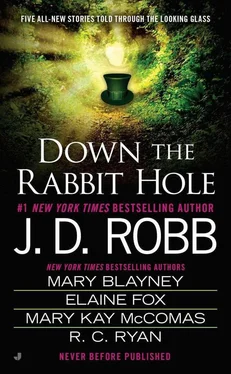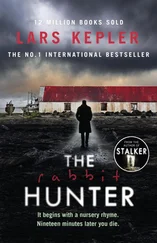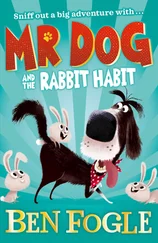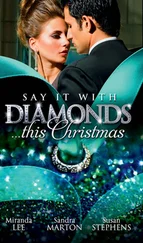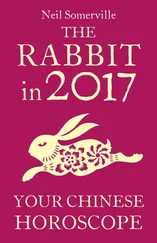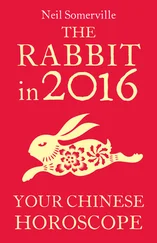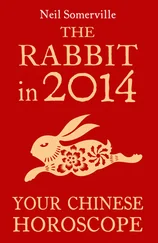Mary Robb - Down the Rabbit Hole
Здесь есть возможность читать онлайн «Mary Robb - Down the Rabbit Hole» весь текст электронной книги совершенно бесплатно (целиком полную версию без сокращений). В некоторых случаях можно слушать аудио, скачать через торрент в формате fb2 и присутствует краткое содержание. Год выпуска: 2015, Издательство: Penguin Publishing Group, Жанр: Старинная литература, на английском языке. Описание произведения, (предисловие) а так же отзывы посетителей доступны на портале библиотеки ЛибКат.
- Название:Down the Rabbit Hole
- Автор:
- Издательство:Penguin Publishing Group
- Жанр:
- Год:2015
- ISBN:нет данных
- Рейтинг книги:4 / 5. Голосов: 2
-
Избранное:Добавить в избранное
- Отзывы:
-
Ваша оценка:
- 80
- 1
- 2
- 3
- 4
- 5
Down the Rabbit Hole: краткое содержание, описание и аннотация
Предлагаем к чтению аннотацию, описание, краткое содержание или предисловие (зависит от того, что написал сам автор книги «Down the Rabbit Hole»). Если вы не нашли необходимую информацию о книге — напишите в комментариях, мы постараемся отыскать её.
Down the Rabbit Hole — читать онлайн бесплатно полную книгу (весь текст) целиком
Ниже представлен текст книги, разбитый по страницам. Система сохранения места последней прочитанной страницы, позволяет с удобством читать онлайн бесплатно книгу «Down the Rabbit Hole», без необходимости каждый раз заново искать на чём Вы остановились. Поставьте закладку, и сможете в любой момент перейти на страницу, на которой закончили чтение.
Интервал:
Закладка:
“Oh,” was Alice’s only reply.
“It seems Vinton is extremely conservative, and it was a shock when his press manager, whatever that is, announced that he would seek a divorce from his wife of twenty years, as she is about to make public her intention to have a sex-reassignment surgery.”
“What!” Alice said, clearly shocked into the curt comment.
“Do you see what I mean about endless questions? Perhaps not all of them are meant for polite company.”
“You’ve gone so far as to introduce the subject; please do not become hesitant now.” Alice put her hand out for the paper and Weston handed it to her. She held it up as she read, and he wondered if she was only using it to hide her face or actually reading the article.
“I assume since it’s in the paper that changing one’s sex is possible in this day and age?” Alice asked Mr. Arbuckle.
“Yes,” their tutor of the twenty-first century replied with a slow nod. “But changing one’s sex is not common.”
“If a woman can become a man, then can a man become a woman?” Alice’s expression was neutral. With effort, Weston judged.
“Yes, it can work both ways, miss.”
Women could now become men? Weston tried to ignore the disquiet that aroused in him and turned to Mr. Arbuckle. “Does one use a magic coin?”
He thought he heard Alice stifle a laugh, but he could not be sure, as she was once again hiding behind the newspaper.
“No, sir. It requires massive doses of hormones and surgery.”
“By all that is holy, you are actually telling me women can become men.” Arbuckle had answered them once, but Weston found himself wishing he had heard wrong.
“Yes, my lord, and men can become women.”
Alice lowered the paper. “Which change is more popular?”
“I do not know, miss, but I could use the computer to find out.” Mr. Arbuckle was a little red in the face himself, and whether Alice noticed it or not, she rejected the offer with a raised hand, as though chasing a fly away. Do they still have flies in 2005? he wondered.
“It says here that Vinton was active in his protests of the divorce rate.” Alice pointed to the article.
Weston had known this was a subject that, though painful, would interest her.
“The article implies that the rate has stayed the same for the last few years, but that Vinton believes it is indicative of a moral decay that he thinks is rampant.”
“Well, yes, the rate has increased dramatically,” Arbuckle explained, “especially from your perspective. I don’t know the exact percentage, but I would say forty percent of marriages end in divorce.”
“By all that’s infamous, that would be forty out of every hundred?” Weston looked at Alice, who was equally astonished.
“But how can that be? Are divorces not expensive anymore?”
“Not as expensive as they were in the nineteenth century.”
“And there is no social ostracism?” Alice asked.
“No, miss, not as there is in your era.”
“In my life,” she said with a breath that was part laugh and part shock.
“Your life, miss?” Arbuckle asked carefully.
“My parents divorced.” Alice spoke without emotion in a tone that suggested no more discussion.
“Oh, yes, then I see why this would interest you.”
“And no one cares anymore? The marriage ends and people go on with whatever they were doing?” Weston asked.
“Well, it’s never that simple. There is almost always pain, and since marriage is a binding contract, the law is involved. But in time everyone goes back about their lives.”
“What happens to the children?” Alice asked, obviously distressed.
“The court awards custody to one or the other parent, or, more usually, both.”
“If they are not living together, at least I assume they are not living together, then where do the children stay? And the former wife. Does she have a place to live?”
“The children live at one house or the other depending on the custody arrangements.”
“Oh, then that’s not so bad, then. I spent the Season with my aunt, while my father was in London, you understand, and the rest of time I was with him.” Alice relaxed a little.
“And the ex-wife usually is provided for. But not always. Some women actually make more than their spouses, and it’s the ex-husband who must be supported. In both cases that stipend is called alimony.”
“That is both fascinating and overwhelming.” Alice considered for a moment, shook her head and went on. “Can you define moral decay, Mr. Arbuckle?”
The poor man looked as though he could use something stronger than tea.
“Um, I assume they mean the casual attitude toward sex outside of marriage.”
Weston shook his head. “It sounds much like the behavior of the ton during the Season and at most house parties.”
“It is not that simple, my lord. The issue is a much-discussed topic, but as to your point, the more liberal members agree with you.”
Alice laughed. “Best not let anyone hear you’ve turned liberal, Wes. It could upset the balance of power in Lords.”
“Alice, I suspect my views on many things will change after this experience.”
They went on to discuss the openness of homosexual behavior and a dozen other social changes that would shock even the most liberal members of the House of Lords.
The three of them entered into a spirited discussion on the issue of moral decay. It was threatening to become a full-blown argument when Tandy knocked on the door to announce dinner. It was a well-timed interruption.
CHAPTER NINE
Dinner was a delicious experience, but completely different from the way the meals were presented and served in Weston’s day. There were fewer dishes, and no footmen to hold the serving platters. The chicken Cook had prepared was in a white wine sauce over a concoction of brown and wild rice (he’d had to ask what it was) with roasted asparagus and a mix of green leaf vegetables covered with what he suspected was an oil and vinegar topping.
Salads, as they were called, were new to him, and without the topping would have been more suitable as food for rabbits—though he was careful not to voice that thought aloud. Despite so few dishes, he was replete after a healthy sampling of everything.
Dessert was the most wonderful burnt cream he had ever tasted. The twenty-first-century name for it was crème brûlée , after the French, and if he thought it was delicious, he was sure that Alice near swooned with pleasure at each mouthful. A suitable white wine accompanied the meal, and coffee finished it, offsetting the feeling of fatigue that had been tempting him to abandon the evening’s adventure.
“Is it a good time to test the Underground, Mr. Arbuckle?” Alice did not seem to be suffering from the same languor as he.
“Yes, most assuredly. We will take the Underground just one stop, but it will be enough of an experience, I am sure. The speed and widespread use of trains for travel first began in the late eighteen hundreds, but they reached their prime in the last century.”
With compliments to the cook, who turned out to be Tandy herself, the three of them left the house once again. The nearest locale to find the Underground was the one they had passed earlier in the day at Piccadilly.
As they went inside and proceeded, quite literally, underground, Alice clung more firmly to his arm. Mr. Arbuckle moved ahead of them with confidence, paused long enough to pay for tickets, and then directed them to the stairs. The moving stairs.
Weston could feel the tension in Alice increase and was sure if he could test her pulse he would find it hammering as hard as his was. Neither he nor Alice stepped onto the moving stairs with as much confidence as the people around them, but no one seemed to care.
Читать дальшеИнтервал:
Закладка:
Похожие книги на «Down the Rabbit Hole»
Представляем Вашему вниманию похожие книги на «Down the Rabbit Hole» списком для выбора. Мы отобрали схожую по названию и смыслу литературу в надежде предоставить читателям больше вариантов отыскать новые, интересные, ещё непрочитанные произведения.
Обсуждение, отзывы о книге «Down the Rabbit Hole» и просто собственные мнения читателей. Оставьте ваши комментарии, напишите, что Вы думаете о произведении, его смысле или главных героях. Укажите что конкретно понравилось, а что нет, и почему Вы так считаете.
